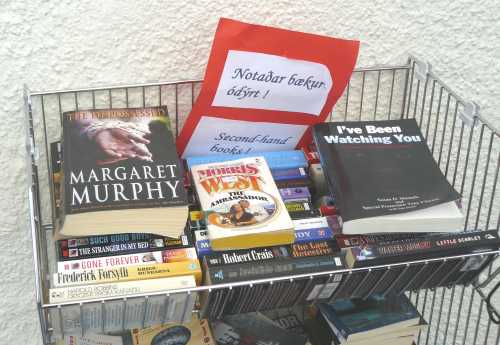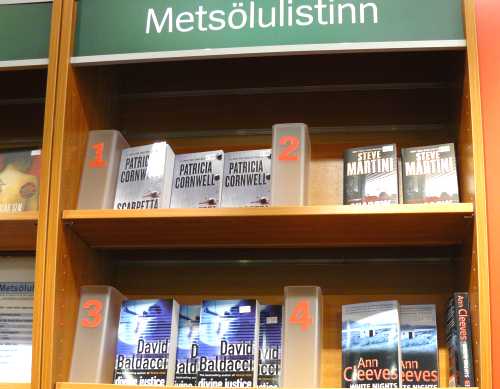One of the reasons why authors have web sites is to encourage people to buy their books; and one of the ways of encouraging them is to make it easy for them.
That’s why so many of the web sites I manage have links to Amazon. It’s not the only place you can buy books: and Cornwell Internet run on-line sales for small publishers, encourage people to buy through independent bookshops (and provide ISBN identifying numbers to make it easier for those shops to order books they might not have stocked) and link to alternative suppliers. But Amazon is big, reasonably efficient, has an Affiliates scheme which actually pays a small percentage back to the author on books ordered through their site – and, the deciding factor for me, at any rate, they stock an enormous number of books. They make it easy for me to use them to make it easy for my clients to sell books.
Well, that’s the theory, anyway.
Nine months ago I blogged here about AmazonFail, a storm in a teacup in which Amazon had – apparently accidentally – removed the sales rankings from a number of books on their site. I commented then that Amazon was a large operation that seemed to find it easier to make mistakes than to correct them, and that they had completely failed at public relations in their response to complaints.
Once is happenstance; twice is…
Last week Amazon.com removed their sales links from books published by Macmillans and their subsidiaries. If you followed a link to one of those books, you would find it, but you couldn’t buy it from Amazon themselves, only from their Marketplace sellers (who sell secondhand as well as new). This was part of a dispute between Amazon and Macmillan about the pricing of e-books.
Personally, I don’t buy e-books. I like ‘real’ books, made out of paper, and while I’m happy to read an extract or a short story online, to decide whether I’m going to buy a particular book, I don’t like the idea of paying for electronic text which only exists on the reader. But that’s just me. There is a market for e-books, Macmillan sell them, and while they can’t force Amazon, as a retailer, to sell their books (e-books or otherwise) at a particular price, they can say that they won’t supply them below a particular price, and if that doesn’t suit the retailer, well, you don’t need to sell that particular item. Amazon not only sell books, they sell the Kindle e-book reader as well; they have a vested interest in keeping the price of e-books down, because the cheaper the books, the better value the reader looks. (I think they also have a vested interest in new books continuing to be written and published, which means keeping the price at a level where that is financially viable, but this isn’t about the merits of the dispute, it’s about the way it was conducted). If they think Macmillan’s price for e-books is too high, they could decline to sell them.
But they didn’t do that, they pulled the plug on all Macmillan’s books.
Over the last couple of years, I’ve started receiving messages from the publishers, particularly the US publishers, of authors whose site I look after. Please, they say, would we link to some other bookshops as well as Amazon? They want to persuade as many shops as possible to stock and to promote their books, and how can they do that if we only encourage people to buy from Amazon? This involves extra work, and takes thought if the page isn’t to look so complicated that people are deterred from purchasing through it; but it’s a fair request, and I sigh, and do it. Since AmazonFail, I sometimes do it even without being asked. And this last week, I’ve been very glad I did, because it made it so much easier to go through and remove the links which – because of Amazon’s action – weren’t actually encouraging people to buy from Amazon anyway.
Today, a week after Amazon’s links vanished without a word of explanation, I was looking at something else on Amazon and – hooray! – the links are back. You can once more buy Macmillan (and Tor and St Martin’s Minotaur and Farrar, Strauss and Giroux…) books from Amazon.
I suppose I should restore my links to Amazon.com. I’ll probably get round to it, but I’m in no hurry – who knows how long the entente will last, or what stunt Amazon will pull next?

 For some reason – and it’s probably coincidence, though I’d like to think it’s the birth of a trend! – we’ve been to two events in the last two weeks which brought together crime fiction and music.
For some reason – and it’s probably coincidence, though I’d like to think it’s the birth of a trend! – we’ve been to two events in the last two weeks which brought together crime fiction and music. But as I have said before, there is always something there to remind us…
But as I have said before, there is always something there to remind us…
